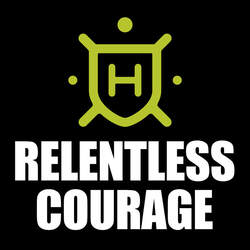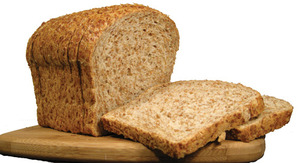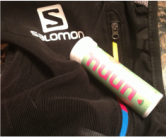Sprouted Grain BreadSprouted Grain Bread
I was asked the other day about Ezekiel (sprouted grain) Bread and I didn’t really know the answer so if you might be interested in learning more, I’ve done some research and here is what I found. How does sprouted bread differ from whole wheat and white bread? White bread is made by removing the wheat kernel's germ and bran (where the nutrients are), grinding up only the endosperm into flour. Whole-wheat bread is made by grinding wheat kernels into whole-wheat flour. Whole wheat provides fiber, and naturally-occurring vitamins and proteins. Sprouted-grain bread is made from wheat kernels that have been sprouted, grounded and baked into bread. This process retains more of the nutrients. Sprouted grains contain more protein and less fat than other breads. Sprouted grains contain about 75 percent of the carbohydrates compared to whole grains, according to an analysis by the Department of Agriculture. They also contain a little more protein, and about 40 percent of the fat of whole grains. Sprouted grains are also easier to digest. The sprouting process almost pre-digests the starches for you by breaking them down into simple sugars. Sprouted grains contains less gluten, which is a bonus for those who are gluten-sensitive. While not gluten free, it can be easier for slightly gluten-sensitive individuals to eat. (However, sprouted bread is not recommended for Celiac patients or those with true gluten allergies.) Christie, Sarah. “Whole Wheat vs. Sprouted Grain Bread”. Mind Body Green. 2 October 2012. You may have noticed that "sprouted grain" breads are gaining in popularity, tucked in between the traditional loaves of sourdough and rye in our bakery. Nowadays there are sprouted grain bagels, English muffins, hot dog buns and even tortillas. But, familiar sounding as the name may be, few people know what sprouted grain products taste like, or even what sprouted grains are. The majority of bread items on grocery store shelves are either of the white or whole wheat variety, gaining their distinction from the flour used in the dough. But sprouted grain breads are not made from traditional flour at all. Here are the key distinctions: Wheat Bread: Made with whole wheat flour that has been ground using the entire wheat berry or wheat kernel, including the vitamin-rich germ and the protein and carb-dense bran. White Bread: Made with white flour that has been created by removing both the germ and the bran from the wheat berry before grinding. White bread lacks the nutritional value that both whole wheat and sprouted grains breads provide. Sprouted Grain Bread: Made from wheat berries that are allowed to sprout before being ground up and made into bread. (Note: Although most sprouted grain bakery items are considered ""flourless,"" they can still contain wheat glutens or even flour as an additional ingredient; so those with gluten intolerance should exercise caution and thoroughly read the labels.) The sprouting process essentially turns the grain into a tiny plant, so when eaten, the grain is treated as a vegetable rather than a starch, thus making it easy to digest. The grains can come from a variety of sprout sources, including millet, barley, oat, rye and even lentils. Sprouted grains are packed with fiber and are considered "whole grain" because they include both the bran and germ. While most breads are vegetarian-friendly, sprouted grain breads are especially healthful, because they can provide a complete set of amino acids, the building blocks of protein, making them a great option for those who avoid meat. The sprouted baked goods such as bread, bagels and tortillas boast a nutty taste and a denser, chewier texture than regular breads. “Sprouted Grain Breads”. Sprouts Farmer Market So, there’s a little bit more information about sprouted bread in case you were wanting to know more. I’ll be switching out my whole grain bread for some sprouted bread for sure! Jon - Owner Training Edge Sports, LLC
1 Comment
Electrolyte balance and hydration
I am somewhat surprised each summer at how much better I feel after replacing electrolytes early and often during and after a long run. Today is Monday. Saturday, I went for 17 miles from my home in Maple Grove to Otsego, where my folks live. Today I ran for 150 minutes through Elm Creek Park Reserve, near my home. After Saturday it was very apparent that something needed to change in how I was training in the heat. My legs felt heavy, I had a foggy brain, my muscles were cramping, my heart rate was elevated higher than usual. I was not balanced. Let me say this, the temperature was about the same both days (90 degrees F). There are a few differences that could have been contributing factors to my poor training session. 1. I was not as well rested Saturday 2. My nutrition was poorer on Saturday 3. I had no electrolyte drink on Saturday The first two apply regardless of temperature but the third is magnified in the heat. We sweat electrolytes. If we drink just water, but don’t replace the electrolytes we lose through sweat, we can become overhydrated. So Sunday, after sitting through Despicable Me 2 with my two oldest, we made a trip to a running store in Maple Grove for some fuel. I stocked up on NUUN, Hammer Electrolyte capsules, Sport Beans, Stinger Waffles and Stinger Gels for the kids when they run with me. Monday morning was nice as my bride of almost 11 years left me to get a little extra sleep (9:00am) – that’s late in my house. We went to swimming lessons, I worked for a couple of hours from home, then decided I would run. It was hot, but I was now prepared. I loaded up my Salomon Hydration Pack, filled a hand held with 2 NUUN tabs and water, plugged in my Lewis Howes “School of Greatness” podcast and headed out the door. Slow to start, I avoided the electrolyte drink for the first 1.5-2 miles as I was going slow (walk/jog) settling into a longer run. I went through 6 NUUN tabs in all, over the 150 minute run and felt great when I finished. I feel great now (a bit tired) too! As a side note, I try to wait until 80 or 90 minutes into a run before I start using any type of fuel (Sport Beans, Waffle, etc). That is so I put off becoming dependent on simple sugar as long as possible. Fat is our most efficient fuel source. Also note that speed and fuel needs are related (the faster you go, the more fuel you’ll likely need). It is possible to increase the speed that your body uses its optimal percentage of fat for fuel. That’s for another post. Jon Howard - 8 time ultra - marathon finisher If you have questions or comments, please contact Jon at [email protected] |
Archives
April 2024
|



 RSS Feed
RSS Feed